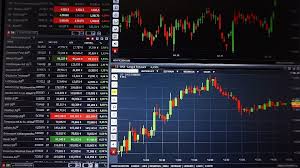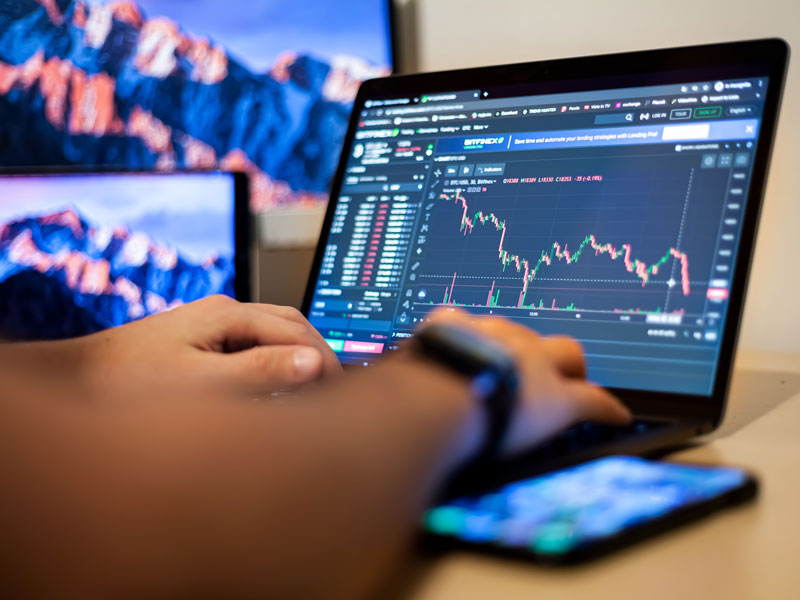Mastering the Market The Importance of Forex Trading Classes

Mastering the Market: The Importance of Forex Trading Classes
In today’s fast-paced financial landscape, forex trading has emerged as a powerful means for individuals to invest and generate income. As a decentralized global market for trading currencies, the forex market boasts a daily volume exceeding $6 trillion. However, despite its potential for profitability, it requires a solid understanding of various strategies, tools, and analyses. This is where forex trading classes https://islamic-fxtrading.com/ come into play. These classes can be pivotal in helping both novice and experienced traders gain essential competencies in currency trading.
Understanding Forex Trading
Forex, or foreign exchange, trading involves buying one currency while simultaneously selling another. The goal is to profit from fluctuations in currency exchange rates. The forex market operates 24 hours a day, five days a week, connecting traders from all corners of the globe. Forex trading classes provide vital insights into how this complex market functions and the variables that influence currency prices.
The Value of Forex Trading Classes
Many individuals enter the forex trading scene without adequate preparation, often resulting in significant financial losses. Forex trading classes offer a structured learning environment where participants can develop a sound understanding of trading concepts. Here are several key benefits:
1. Structured Learning
Forex trading classes provide a structured curriculum that covers all essential aspects of trading. Learners can systematically explore topics ranging from basic concepts to advanced trading strategies. This comprehensive approach allows participants to build confidence as they progress through the educational material.
2. Expert Guidance
The forex market is continuously evolving, making it crucial for traders to stay informed about the latest trends and developments. Instructors of forex trading classes often bring a wealth of experience and knowledge to the table. Their insights can prove invaluable, as they guide learners through practical scenarios and real-world applications of trading theories.

3. Networking Opportunities
Forex trading classes offer an excellent opportunity for individuals to connect with like-minded individuals. Networking with fellow participants can foster collaboration, information sharing, and support, creating a sense of community within the trading ecosystem. These connections may even lead to valuable partnerships or mentorships in the long run.
4. Access to Resources
Participants in forex trading classes usually gain access to various resources, including trading platforms, analytical tools, and educational materials. These resources empower learners to conduct their own research and practice trading without the financial risks typically associated with live trading accounts.
Course Content Overview
Forex trading classes may vary in structure and content, but many will cover the following topics:
- Basics of Forex Trading: Introduction to currency pairs, market terminology, and how to read forex quotes.
- Technical Analysis: Understanding charts, indicators, and patterns to make informed trading decisions.
- Fundamental Analysis: Analyzing economic indicators, news events, and geopolitical factors that impact currency prices.
- Risk Management: Learning to manage risk and establish stop-loss orders to protect investments.
- Trading Strategies: Exploring various strategies such as day trading, swing trading, and scalping to find a personal trading style.
- Psychology of Trading: Understanding how emotions impact trading decisions and learning to develop a disciplined mindset.
Choosing the Right Forex Trading Class
With numerous options available, choosing the right forex trading class can be daunting. Here are some essential factors to consider:
1. Reputation
It’s crucial to research the reputation of the forex education provider. Look for testimonials from past students and check for any affiliations with established financial organizations. A reputable provider often signifies a commitment to quality education.

2. Course Format
Different learning formats suit different individuals, so consider whether you prefer in-person classes, online webinars, or a mix of both. Online classes may offer flexibility, while in-person classes often allow for more direct interaction with instructors and peers.
3. Curriculum Depth
Review the course syllabus to ensure it covers all the necessary topics you wish to learn. A well-rounded curriculum should include both theory and practical application to prepare you for real-world trading.
4. Support and Resources
Ensure that the class provides ongoing support and access to resources after the course concludes. This may include mentorship, forums, or access to trading tools and platforms that facilitate continuous learning.
The Long-term Benefits of Forex Education
Enrolling in forex trading classes is a long-term investment in your trading career. The skills and knowledge gained will not only prepare you to enter the forex market but also equip you with the tools to navigate its challenges. With education, traders can develop robust strategies, mitigate risk, and most importantly, foster a mindset geared towards success. As the adage goes, “Knowledge is power,” and in the world of forex trading, this adage rings especially true.
Conclusion
Forex trading classes can be a transformative experience for aspiring traders. By providing structured learning, expert insights, and networking opportunities, these classes empower individuals to take control of their financial future. As you embark on your forex trading journey, consider enrolling in a class that aligns with your goals and learning style. With dedication and the right education, you can unlock the potential of the forex market and achieve your trading objectives.

